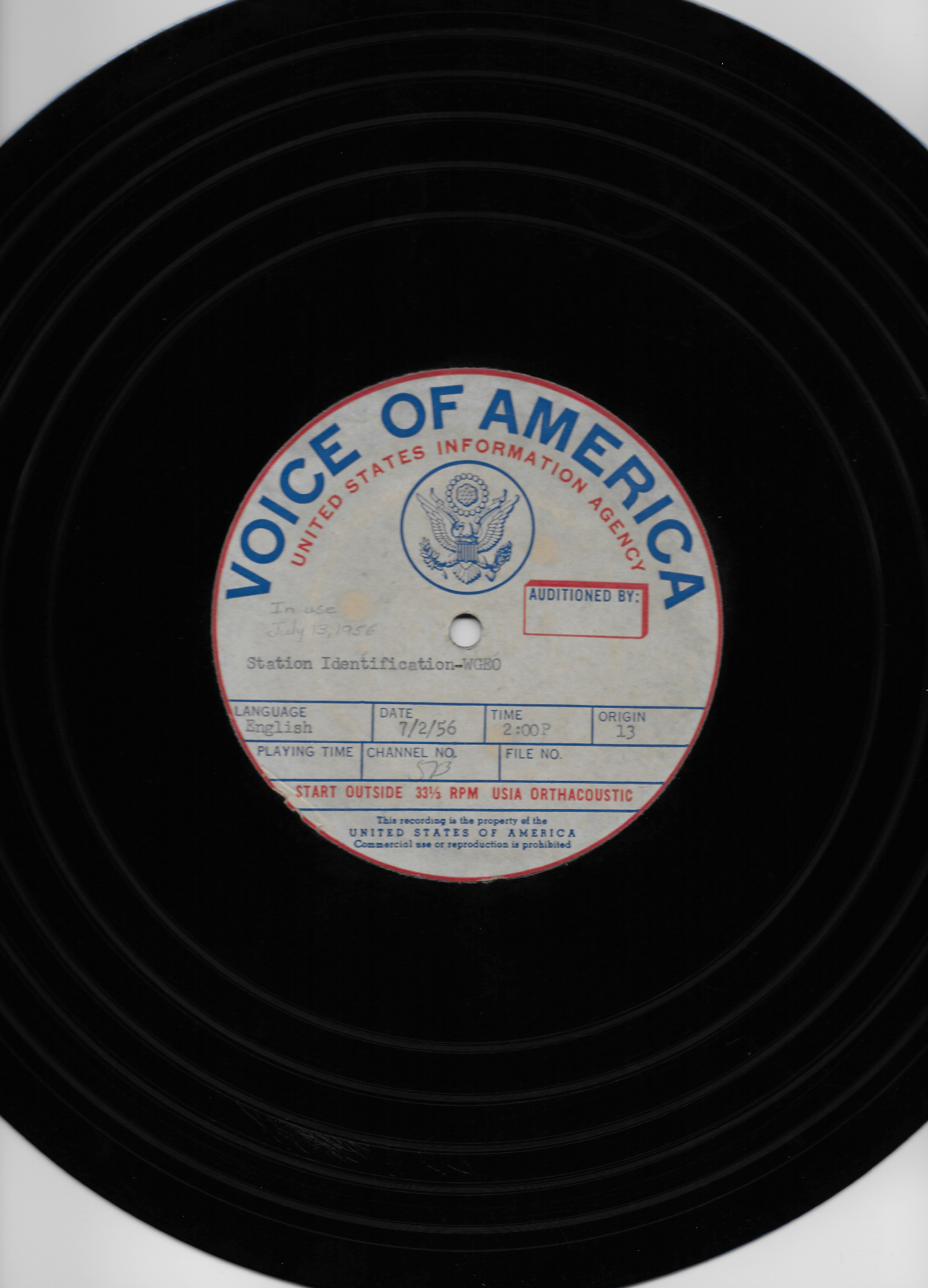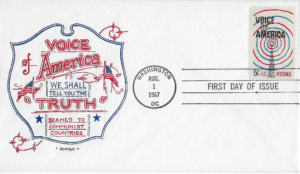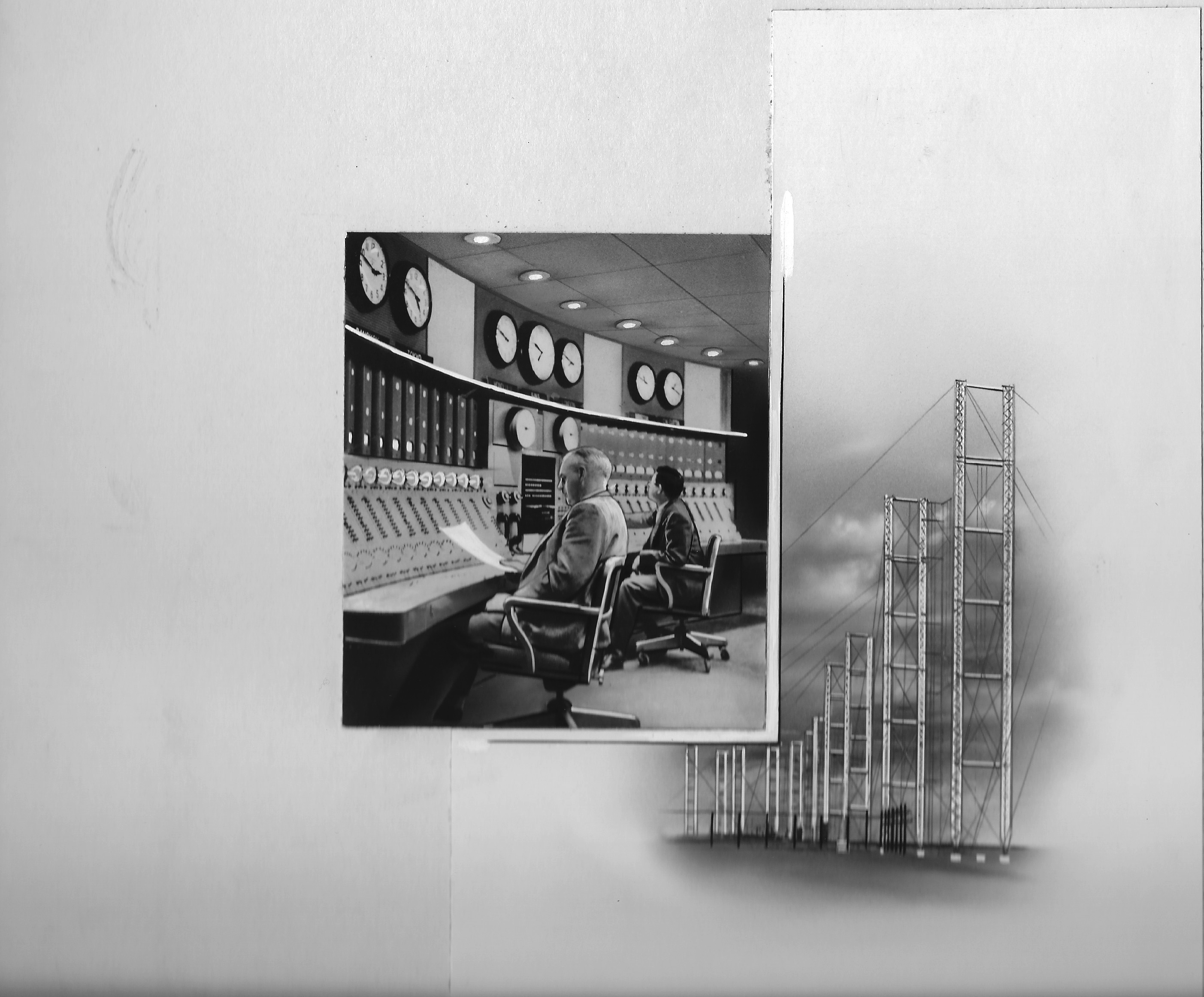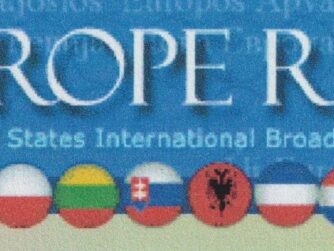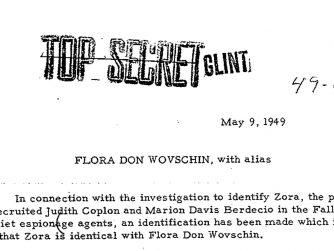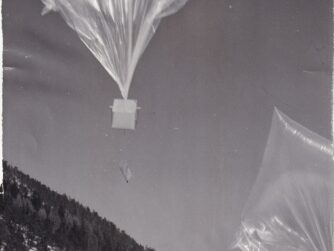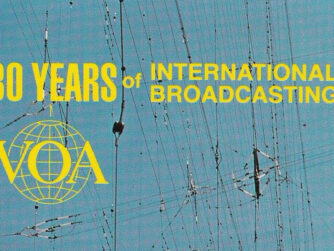During World War II and the Cold War, the Voice of America (VOA) used shortwave radio transmitters operated by private U.S. companies to reach audiences in Nazi and Japanese controlled territories and later audiences in communist-ruled nations behind the so-called Iron and Bamboo Curtains.
One of the commercial transmitters used under contract with the U.S. government was the shortwave radio station WGEO in Schenectady, New York, operated by General Electric. The U.S. Government also owned and operated its own shortwave radio transmitters in the United States and abroad.
VOA Master Control room and transmitters from an illustration by the Washington Press for one of the First Day Cover created for a 1967 U.S. stamp which showed the VOA logo and a depiction of a transmitter with radio waves.
The Voice of America recording of Station Identification for WGEO is from 1956. The vinyl record’s label shows that it was recorded on July 2, 1956. A marking in pencil indicates that the recording was “In use” on “July 13, 1956.”
At the time of the recording in 1956, the Voice of America was operated under the United States Information Agency (USIA), which was the public diplomacy arm of the U.S. government linked with the Department of State but functioning as an independent agency. USIA’s Foreign Service officers (FSOs) occupied some of the key policy and managerial position within VOA, but VOA programs were prepared by professional journalists, editors and broadcasters who were federal Civil Service and Foreign Service employees. Both USIA and VOA directors were then nominated the President and confirmed by the U.S. Senate.
1956 was a year of upheaval in the communist block. VOA shortwave broadcasts, as well as those of Radio Free Europe, operated outside of the federal government but funded through the CIA which also provided U.S. policy guidance, played a major information and public opinion-shaping role during the June 1956 Polish workers’ protests in Poznan, the October 1956 Polish communist regime change under pressure from the Polish society, and the October-November 1956 Hungarian Revolution. Some of the U.S. commercial shortwave radio transmitters, which later went back to airing religious and other private programs, were reactivated briefly by the U.S. Government during the 1962 Cuban Missile Crisis.
From a vinyl record marked:
Voice of America
United States Information Agency
AUDITIONED BY:In use
July 13, 1956Station Identification-WGEO
LANGUAGE
English
DATE
7/2/56
TIME
2:00P
ORIGIN
13
PLAYING TIMECHANNEL
5B
FILE NO.START OUTSIDE 33 1/3 RPM USIA ORTHACOUSTIC
This recording is the property of the
UNITED STATES OF AMERICA
Commercial use or reproduction is prohibited


